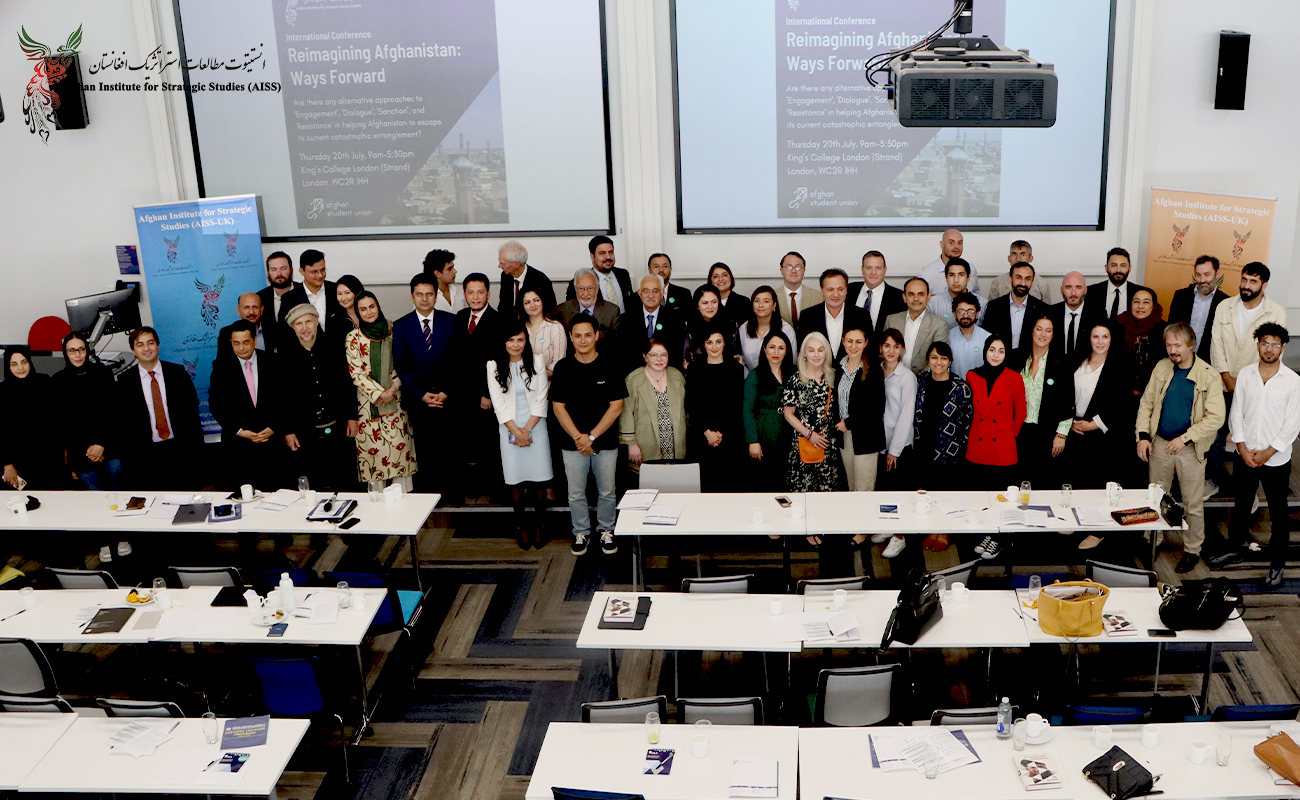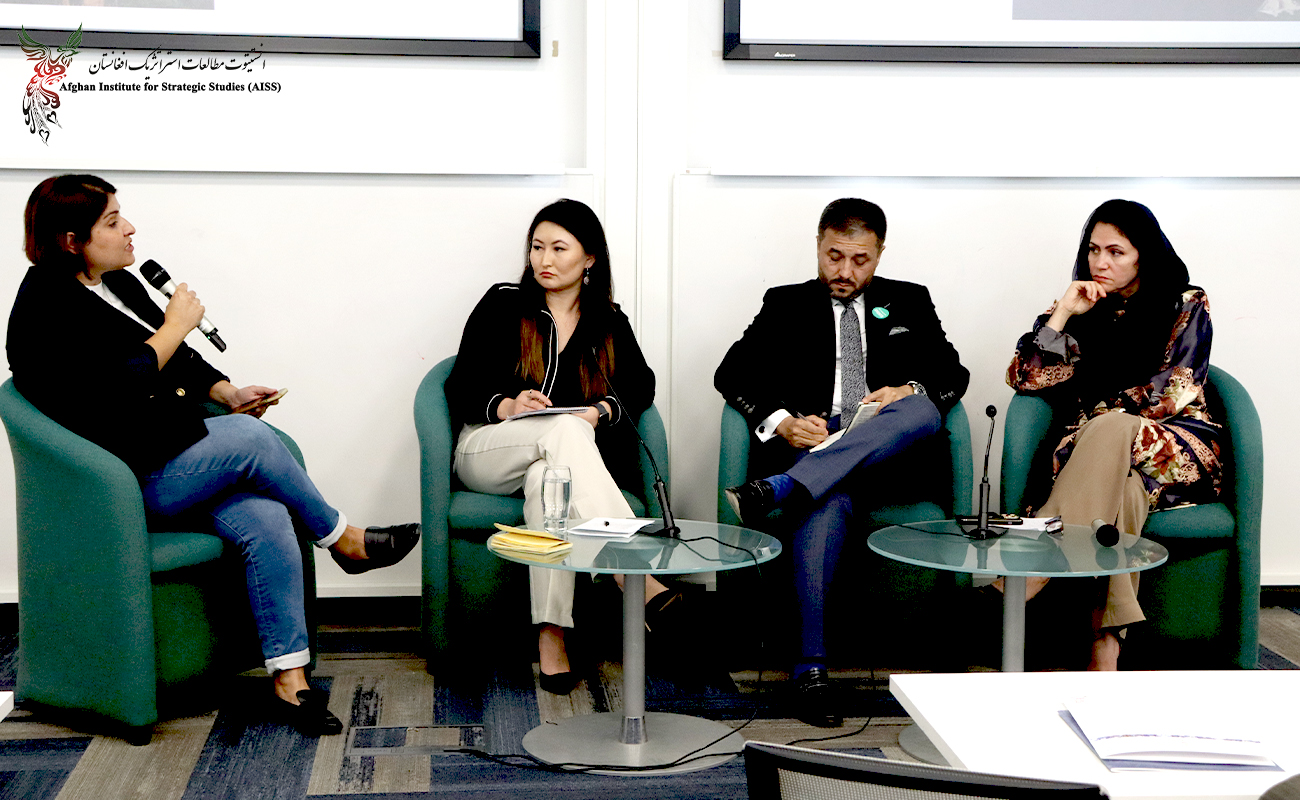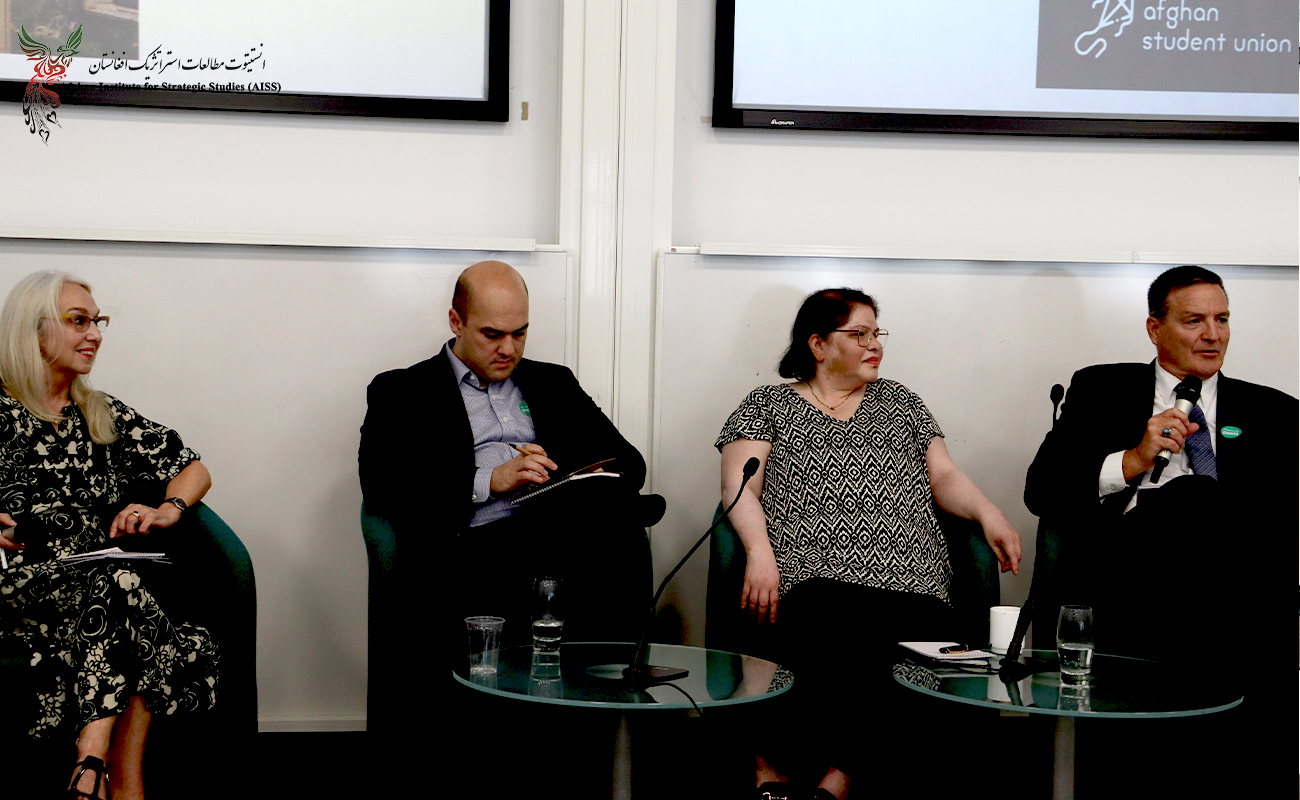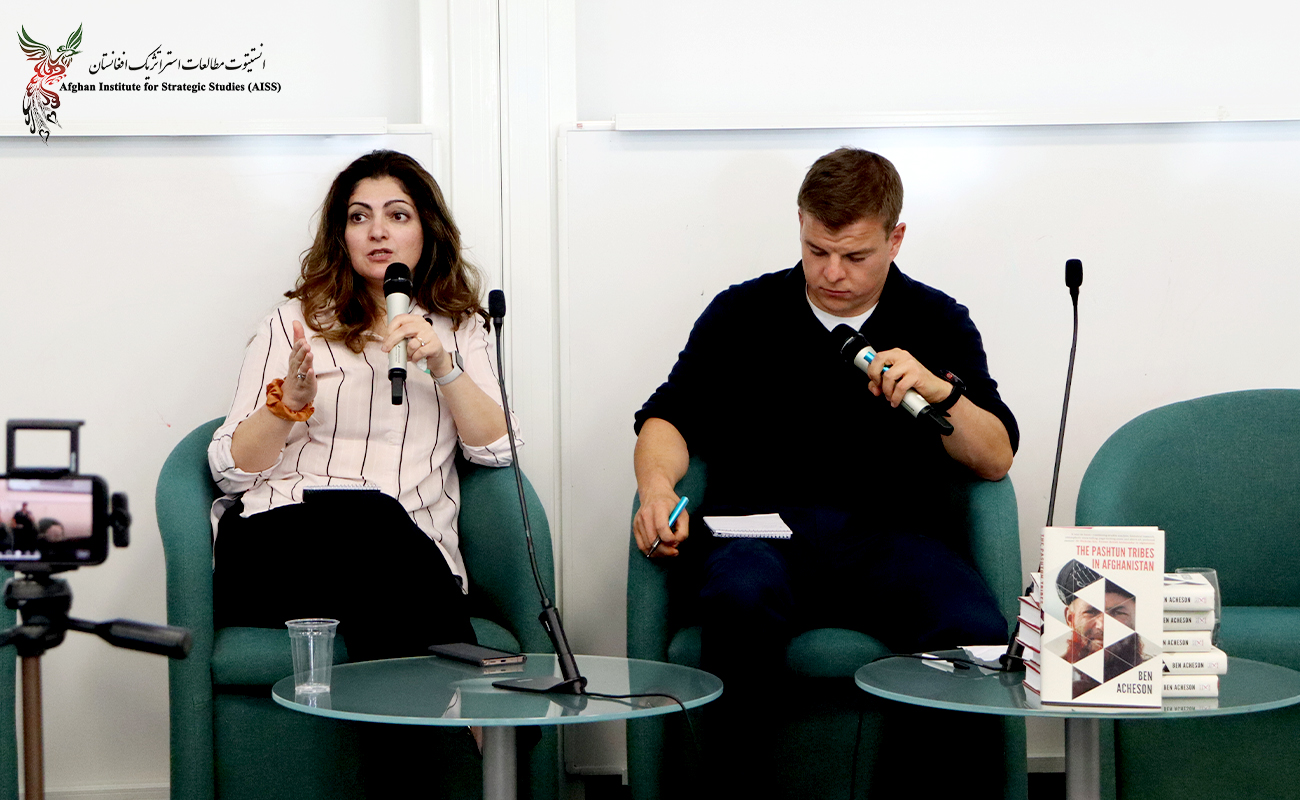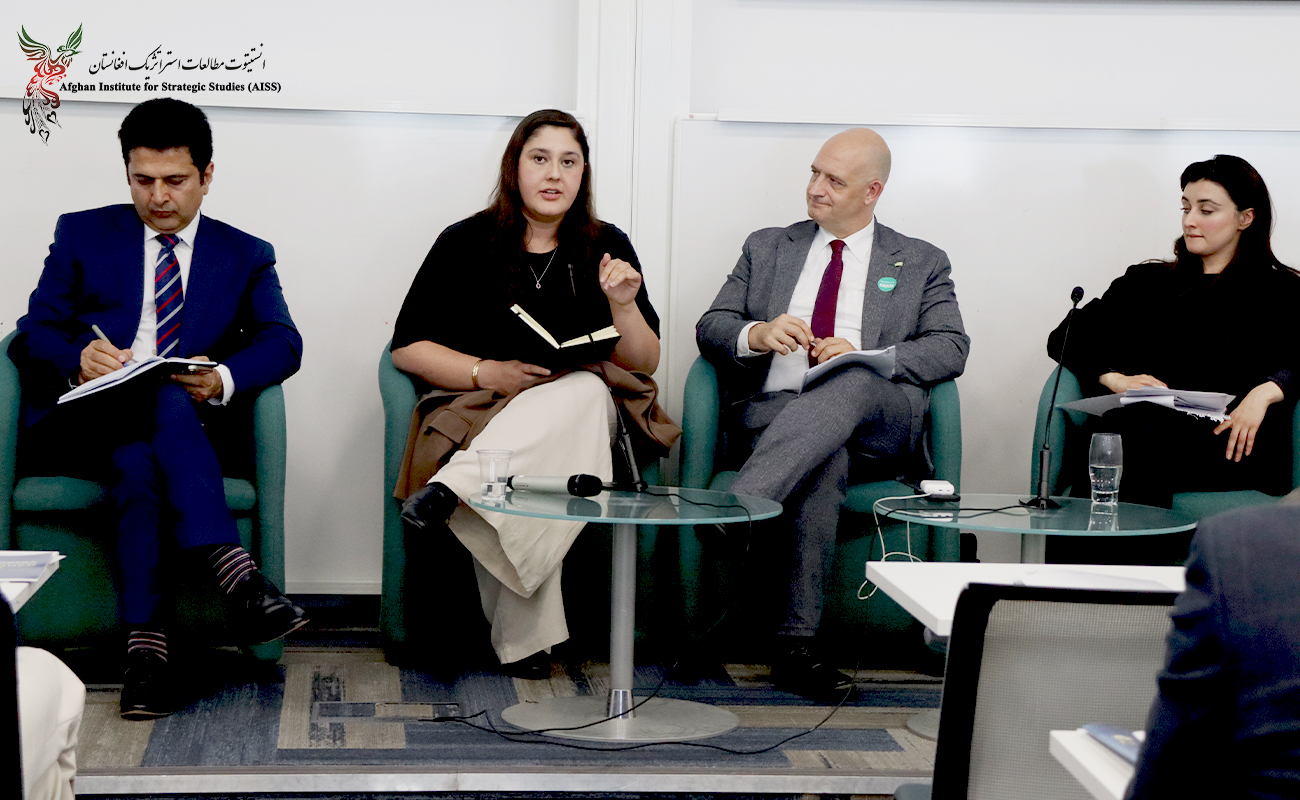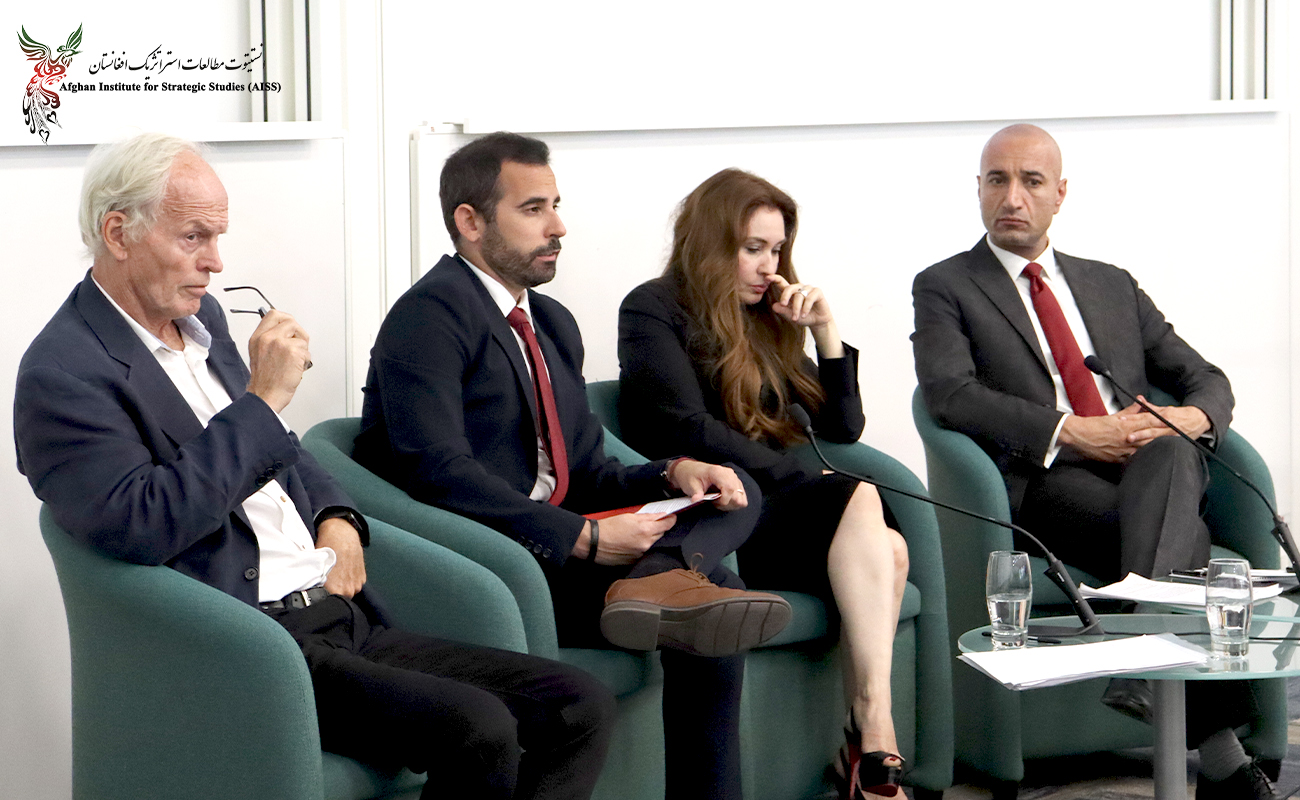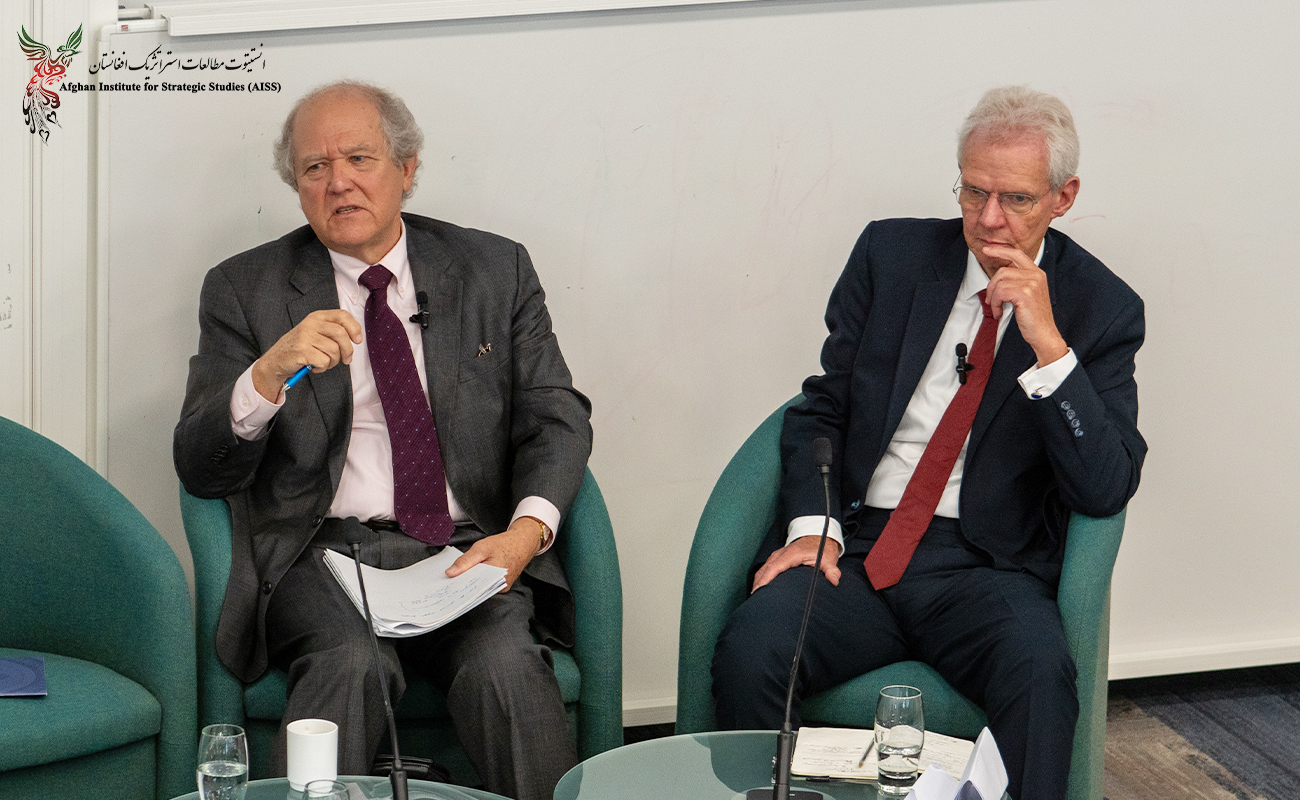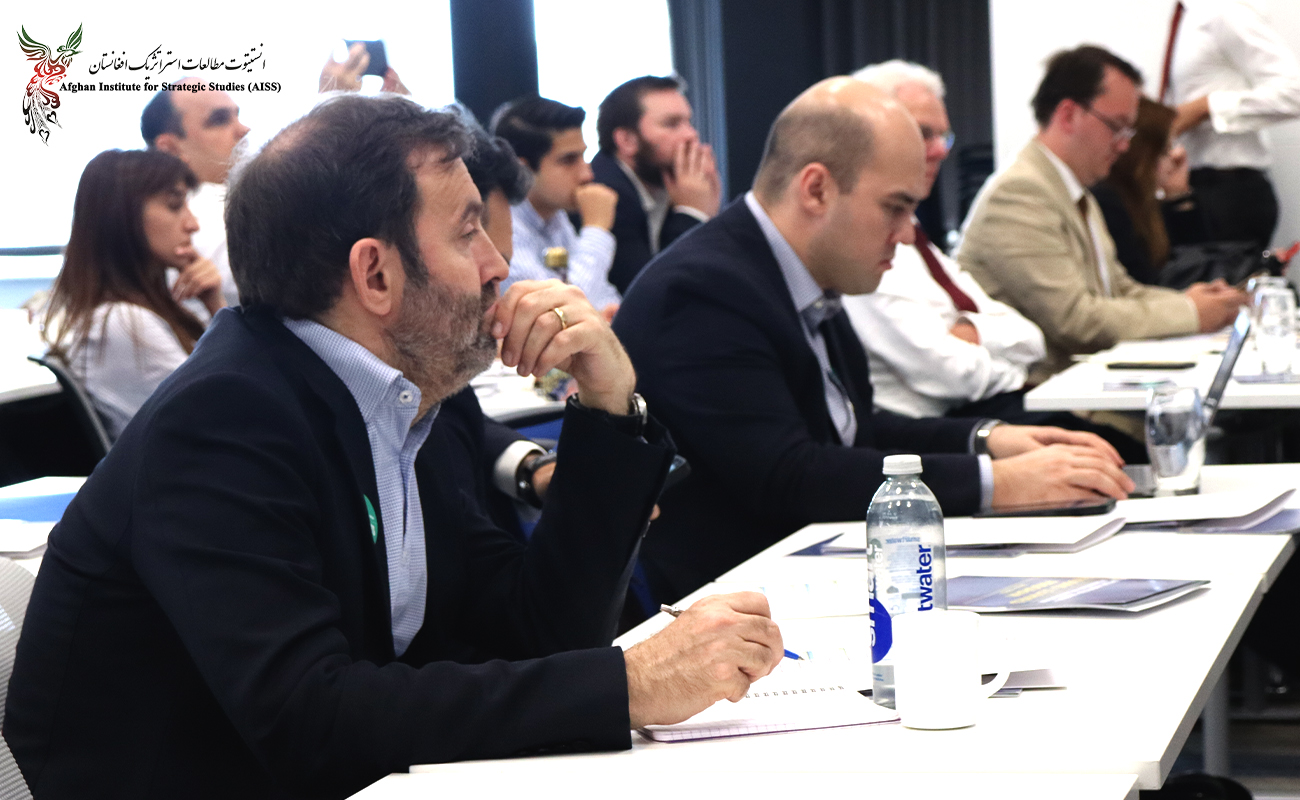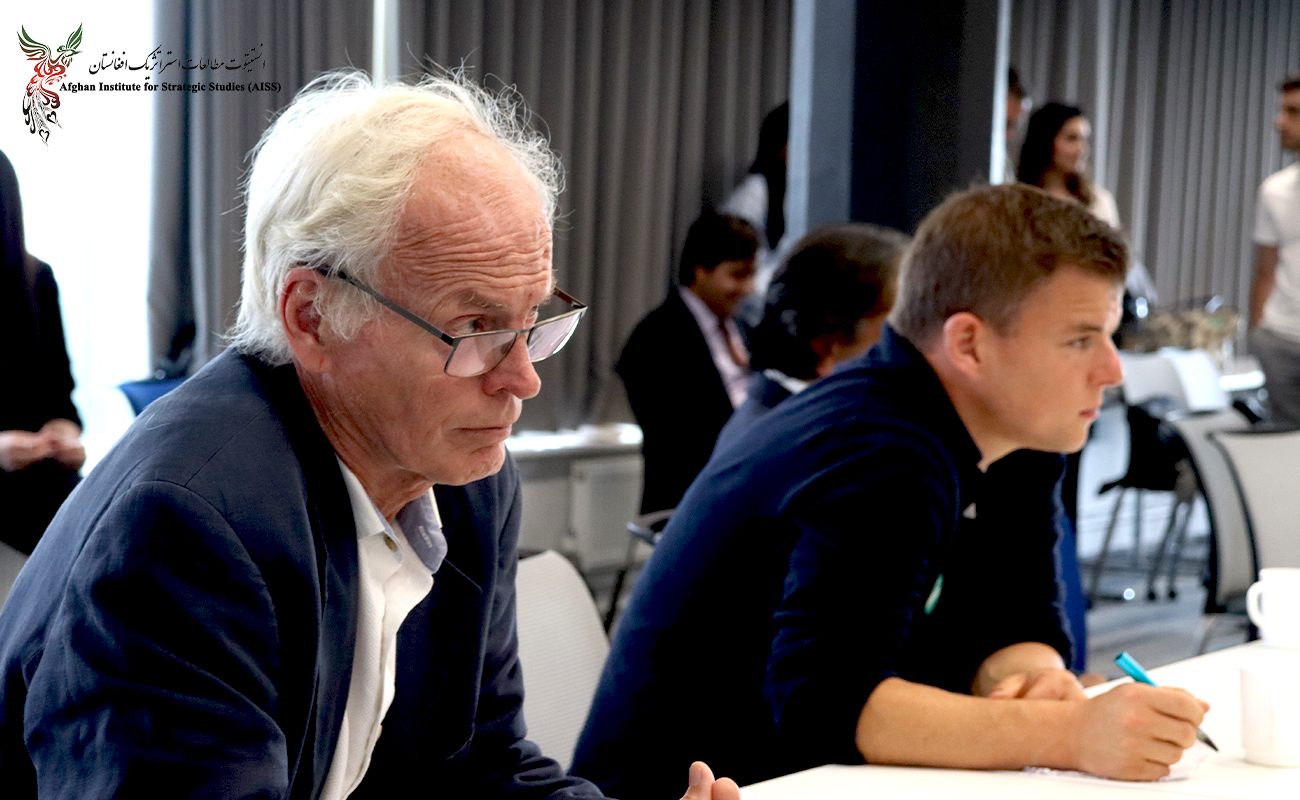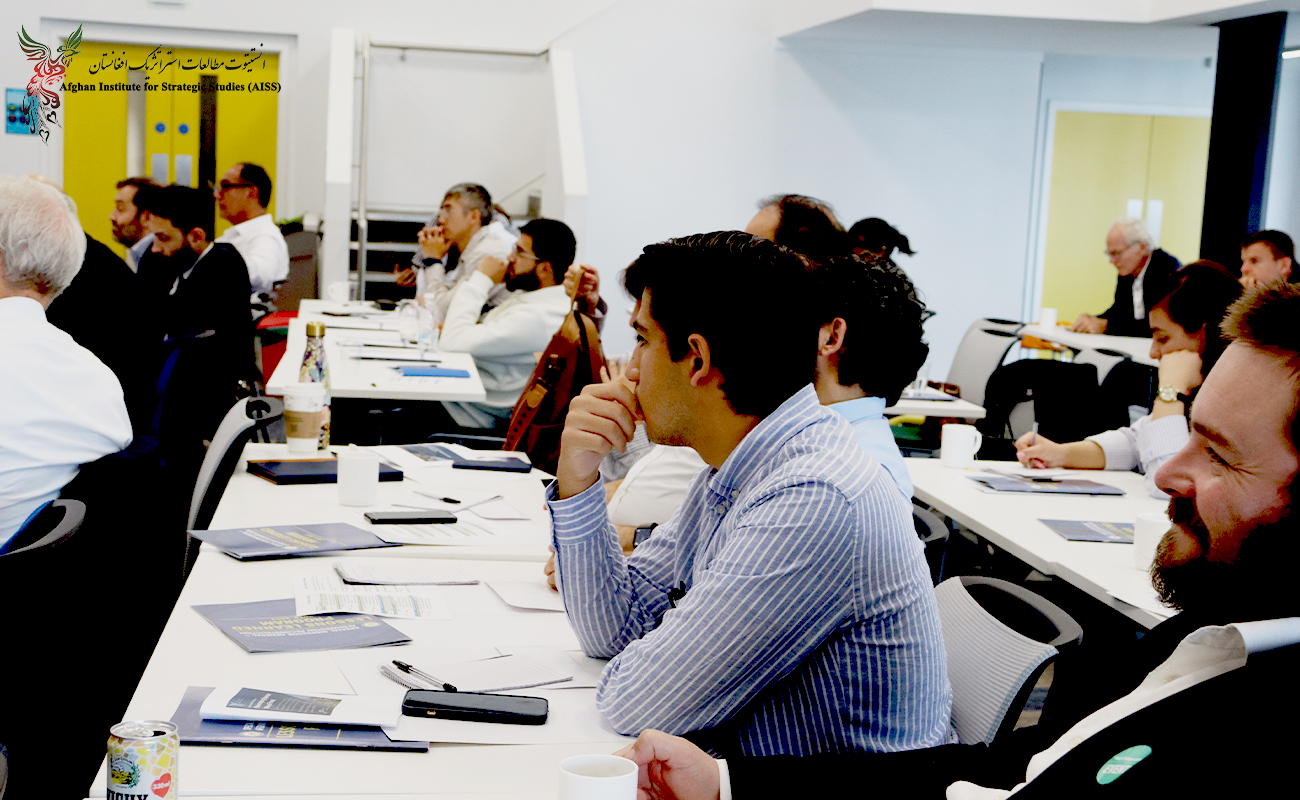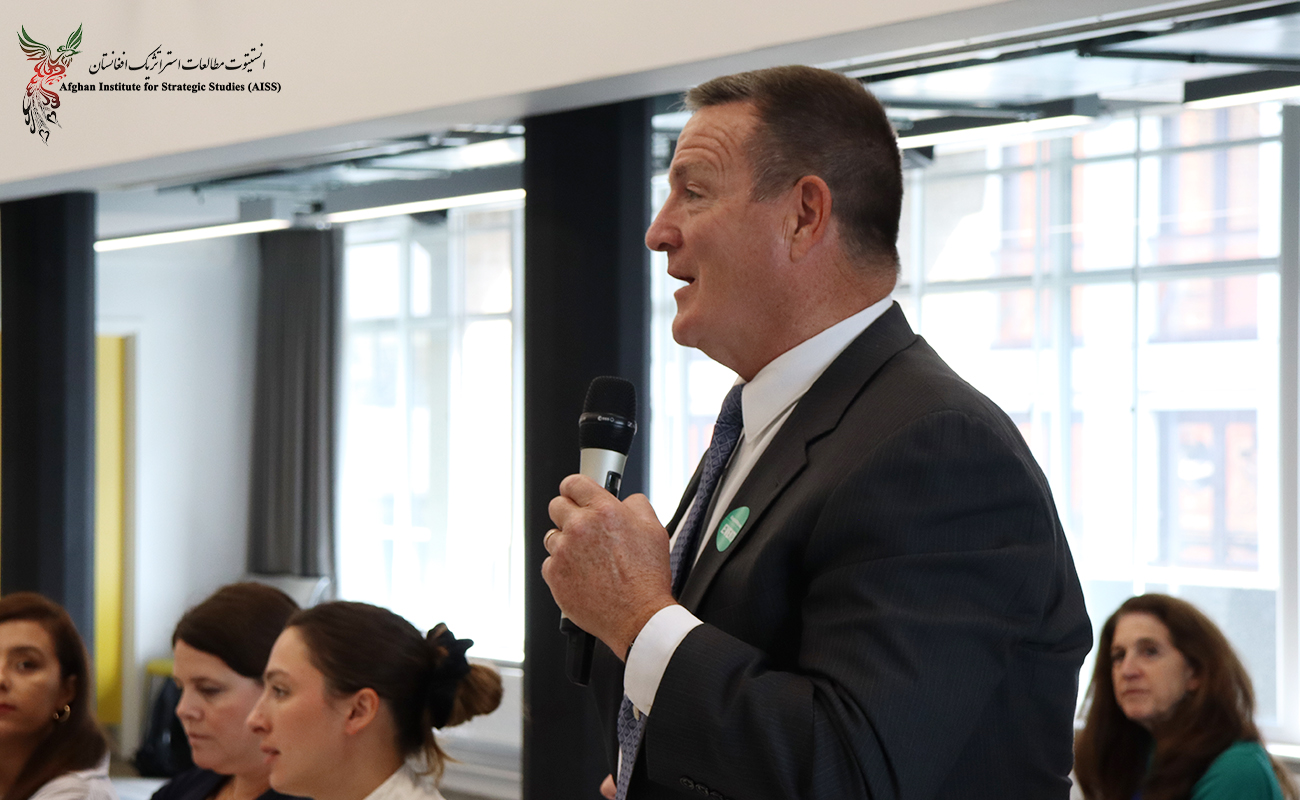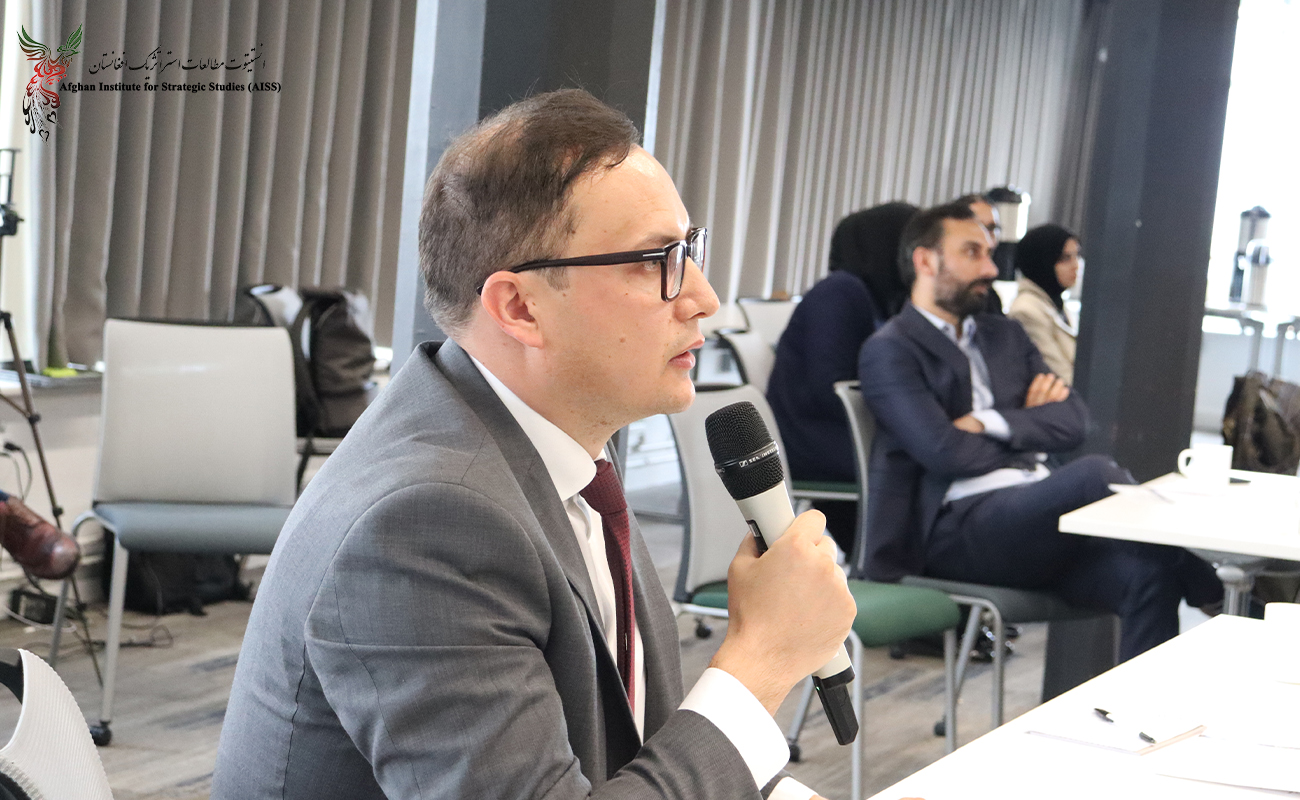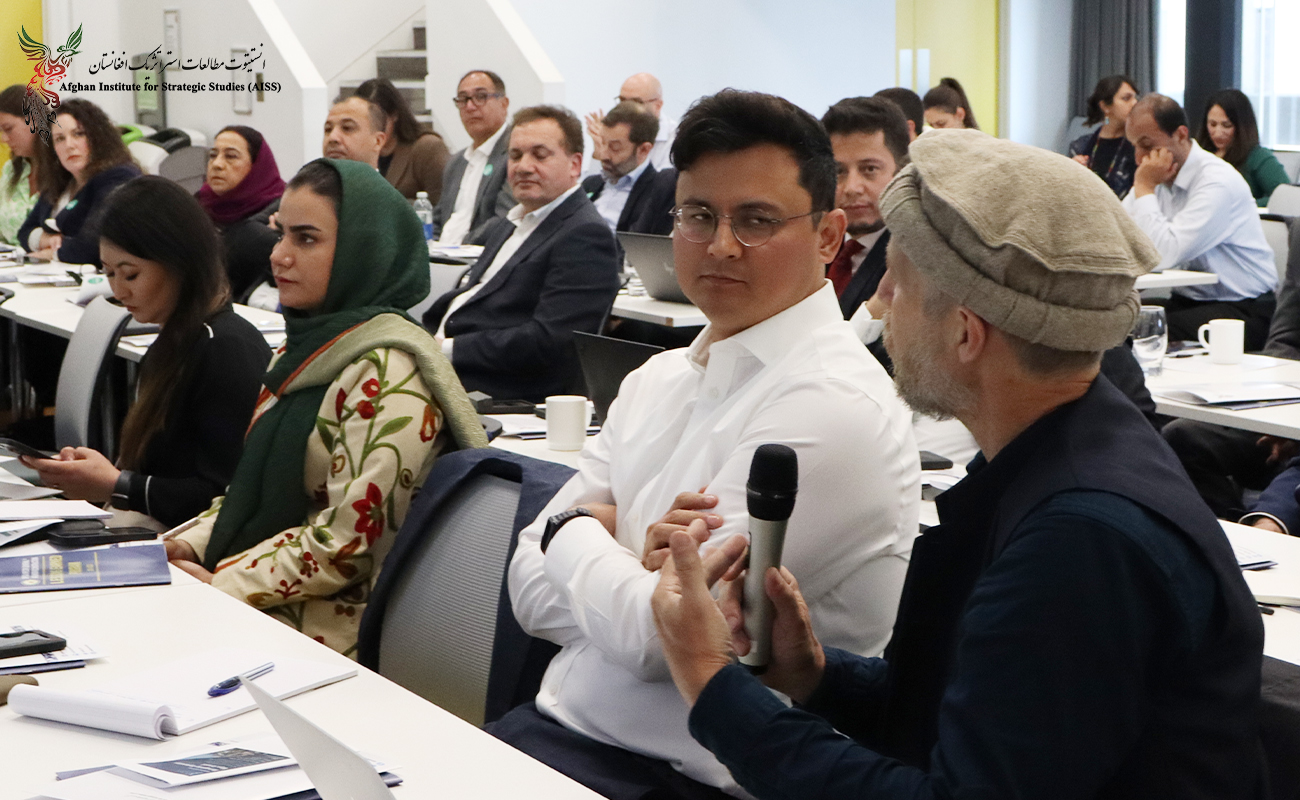International Conference ‘Reimagining Afghanistan: Ways Forward’
The Afghan Institute for Strategic Studies-AISS held one day conference at King's College London, on July 20th, 2023.
The International Conference 'Reimagining Afghanistan: Ways Forward' brought together a selected number of experts, officials and analysts to exchange views on the sustainable settlement of Afghanistan’s decades-old conflict.
Mr. John F. Sopko, USA Special Inspector General for Afghanistan Special Inspector General for Afghanistan Reconstruction (SIGAR) was the “Special Guest” alongside other distinguished guests. He spoke about Afghanistan's complex social and economic issues and how the US expectations were unrealistic. In addition, Mr. Sopko commented that the Taliban have effectively infiltrated United Nations's aid programs, which poses a global threat. He also revealed that a new proposed draft law, which was passed by the House and under consideration by the Senate, will prohibit any US assistance going “directly or indirectly” to the Taliban. Mr. Sopko predicted the bill, if passed, would have “serious implications” for aid to Afghanistan.
Our first panel 'Emerging Black Hole: Convergence of ‘Acute’ and ‘Chronic’ Ills' discussed the latest UN monitoring report on the Taliban (June 2023), which focuses on peace and stability in Afghanistan. Information was gathered by member states. Regional perspective needed to overcome domestic obstacles in Afghanistan, while regional countries need to be involved as part of a solution. Dr Esther Zubiri, UN Security Council Expert, ISIL/ AL-QAEDA/ Taliban Sanctions Monitoring Team
In the meantime, there are now internal divisions within the Taliban. Al Qaeda currently has a succession dilemma since 2022 and now has the option of choosing a young and modern leader to attract new and more followers. This would allow propaganda among the youth. Since the return of the Taliban in 2021, Al Qaeda has found a new safe haven in Afghanistan and resumed its operational capacities. But the Taliban will not allow Al Qaeda to resume its global agenda against the West again. Post-2021, Al Qaeda has a great chance to re-establish its capacity in Afghanistan. Carlos Igualada, Director International Observatory of Terrorism (OIET)
There is an importance to have a UK presence on the ground in Afghanistan in order to support and build civil society and state institutions, but not to recognise the Taliban and have diplomatic relationships with the group. Next is to help the Afghan political oppositions to prepare for an inclusive government. Sufficient unity needed within the political opposition needed. Thirdly, we need to increase accountability for the Taliban, their actions and the price they should pay for their human rights violations. Travel bans and some of the asset bans need to be enforced. Sir Nicolas Kay, Former UK Ambassador to Afghanistan
Our second panel 'Unlocking the Taliban Conundrum: Engagement, Accountability, Resistance' spoke about the financial leverage that the international community has. Dr Hans-Jakob Schindler, Senior Director, Counter Extremism Project (CEP) commented on how the Taliban regime is in power as was in the 1990s and how ISIS-K is an ideological challenge to them in Afghanistan. The Taliban are trying to establish an Islamic Emirate but violent punishment is not as severe as was previously. Neither Al Qaeda or ISIS-K have changed their ideology in any capacity.
Dr Mujib Rahimi, Author and University Lecturer discussed how the religious and political ideology of the Taliban hasn't changed in terms of aims, agenda, and their relations with the international community since they came to power. The Taliban was inspired by Sunni ideology and seeks to establish Sharia model in Afghanistan. Thus, the political theory of Sunni Muslims legitimises the status quo of the historic acts after the death of the Prophet.
Cllr Peymana Assad commented how academia shuns Afghans and their perspectives of their country. The Cllr said that NATO will not intervene militarily in Afghanistan again, while there is no public support for this across Europe. The British government doesn't see a counter-terrorism threat from Afghanistan so they will not intervene. Afghans themselves would not actively choose the Taliban as their government if given a choice. But there is no armed resistance group the West currently support. She mentions that the international community needs to consider the Pakistan question in relation to the Taliban, as they are seen as covert occupiers.
Mr. Ben Acheson, Former Political Adviser to EU and NATO Special Representatives in Afghanistan was also there for the launch and signing of his book 'The Pashtun Tribes in Afghanistan'. The book provides the knowledge needed to navigate a complex tribal environment. Framed by first-hand experience and balancing in-depth analysis with engaging anecdotes, it sheds light on the Pashtun way of life still enshrined in the ancient Pashtunwali honour code. Pen and Sword Books
Our third panel ' External Orchestra: Tuning the Choir' focused on the role of the external actors and regional perspectives. After the 2021 fall of Kabul, the approach of Central Asia towards Afghanistan did not change drastically. It is still an important neighbour and has strong impact on the region. The events of 2021 show the need for great stability and peace, and regional cooperation. Central Asia has been pragmatic towards Afghanistan. Additionally, Amu Darya water usage increase by Afghanistan was expected but not without regional consultation. So, a compromise about this issue is now being discussed with the Taliban. Umarov Akram, Deputy Director of the Institute for Advanced International Studies
Western powers have disengaged with Afghanistan. However, Pakistan has solidly stood by the Taliban. But Pakistan has a problem when it comes to the TTP (Tehrik-i-Taliban Pakistan) and its attempts to exert power in the North East of the country. There is now a religious ideological movement taking place in Pakistan’s Pashtun areas. Furthermore, China is now considering investing in Afghanistan. The region lies between stability and instability, as well as competing interests. As there is no alternative to the Taliban, they will remain in Afghanistan. The alternative has to be an effective counter measure to the Taliban. Dr. Ayesha Siddiqa
Col (Ret) and Deputy Director of Global Friends of Afghanistan, John Agoglia said that Afghanistan was offered an alternative to the current system for twenty years (2001 to 2021), but Pakistan undermined that. The West cannot accept the Taliban at present given their human rights violations. Discussions can take place but the Taliban cannot be accepted as the rightful voice for the people of Afghanistan. The US is also at fault for having engaged in negotiations with the Taliban without the presence and representation of the previous Afghan government. Young Afghans who have watched the transformation of their country for the last twenty years need to be centred in terms of the political alternative for Afghanistan.
The fourth panel 'Summing the parts: Transitioning to an Afghanistan-Centric Approach' discussed how Afghanistan was pushed to be a multi-ethnic state within established borders between the 19th and 20th century. This geographical entity that is Afghanistan, since 1901, does not correlate with the geography, society and economy of the country. Thus, there has been a failure of a management of resources and diversity in the country. The government has tried to ignore difficult issues. Short term issues were engaged with given the terms of the politicians. Additionally, there was never a belief in the dynamism of the country’s institutions. There was no agreement between the different factions and their actors. On the surface there was individualism but underneath there was collectivism relating to various stakes in political games. Nasir Andisha, Ambassador and Permanent Representative of Afghanistan to the UN in Geneva
Moreover, Homira Rezai pointed out that every Afghan is carrying the generation trauma of war. 'We want to work for a peaceful Afghanistan but do not agree on the problems in the country. Diaspora does not acknowledge the suffering of Hazaras for example, it is not just in Afghanistan. We need to listen to the vulnerable communities and not invalidate their experiences. Conferences need to reflect the diversity of Afghanistan. These conversations therefore require true representation. Ideological divisions lead to certain types of fragmentation in Afghanistan and the diaspora. So how can we establish a national dialogue ?'
Ms Fawzia Koofi concluded that what civil society in Kabul would emphasise is what many people across the country were supporting. There was unity on national principles. But the negotiations were very slow and out of touch with the people and not supported by the Taliban. The Taliban currently feel insecure hence their constant suppression of the people. There is internal divisions within the Taliban which is an opportunities for their political opponents. Some members know new Taliban decrees are not sustainable or good long term ideas. These are leverage points for the Taliban’s political opponents. There is shared unity against the Taliban and women’s rights across the political spectrum. The Taliban are outdated and cannot handle the young generation of Afghans. They cannot handle a transformed Afghanistan. Furthermore, women’s rights is a basic unifying issue across society despite other areas of divisiveness among the anti-Taliban groups and movements.

